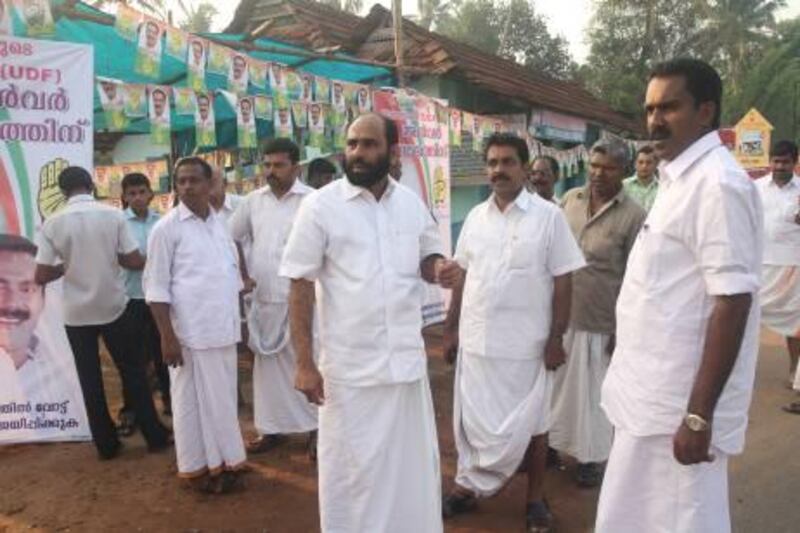DUBAI // Indian expatriates living in the UAE made history yesterday by joining thousands of people who travelled to their homeland to cast ballots for the first time.
"This is an amazing experience," said Babu Peethambaran, a property consultant from Dubai who voted in Kerala's Kannur district for the first time in 27 years.
"I had postponed my annual holiday to time it with the elections as I was really keen to take advantage of the government's move that gave us voting rights."
Last August, the central government in New Delhi agreed, for the first time in the nation's history, to grant non-resident Indians (NRIs) the right to vote.
Kerala's state assembly elections were one of the first contests under the new law - and given the vast number of Keralites who work in the Gulf, they were shaping up as a gauge of the appeal of the new-found franchise.
While only a small fraction of those eligible - roughly 8,800 voters out of an estimated 2.5 million Indian nationals across the Gulf - took part in yesterday's elections, many said the turnout would have been higher if the rules had been clearer.
Polling began in the state's 140 constituencies at 7am yesterday and ended at 5pm. Overall, turnout was strong, with more than 70 per cent of the state's eligible residents voting. More than 23.1 million people were expected to cast their votes at 20,758 polling stations. The results are to be announced on May 13.
In India, the states and the union territories go to the polls every five years. The state assemblies are directly elected bodies that carry out the administration of the central government.
Expatriates blamed yesterday's lower turnout among NRIs on conflicting guidelines laid down by the Ministry of Overseas Indian Affairs and the election commission in enrolling voters.
"We were initially told that self-attested copies of residents' passports would suffice," said NP Ramachandran, the general secretary of the Overseas Indian Cultural Congress in the UAE. "The election commission initially demanded passport copies be attested by the overseas Indian missions and just a few days before the final enrolment dates, agreed to accept self-attested documents. Many people were unable to register because of this confusion."
The minister of overseas Indian affairs, Vayalar Ravi, defended the delay, saying his ministry had several rounds of discussions to persuade the election commission to allow self-attested papers.
"It was with great difficulty the election commission agreed to accept self-attested copies of passports," he said. "We are happy we finally set the ball rolling. It's really great that so many people have turned up in large numbers to enthusiastically vote."
Voters have also been demanding electronic voting or absentee ballots, a practice common in western nations.
"If online voting was possible, more Indians will exercise their franchise," Mr Ramachandran said.
Mr Ravi agreed: "This depends on the election commission's ability to develop an electronic voting process."
But for those who took the trouble to vote, yesterday was a special day.
Shahnawaz Elamana, a sales executive from Dubai, had arrived in Kerala a few days early to canvass for his favoured party's candidates.
"My party has good support and I wanted to be there to bolster support for them," Mr Elamana said. "However, it is a great feeling to have voted with fellow expatriate Indians who have come all the way from different countries, like me."
He continued: "One of my friends was contesting the election, and I just had to be there to support him. I was lucky I could arrange a substitute beforehand at work to get here. Many others were unable to travel either because it's expensive or because they were unable to take time off."
Abdul Azeez, who runs a maintenance company in Abu Dhabi, said this was an opportunity he could not ignore to have a say in his state's development. "I was thrilled when the government gave us the go-ahead last year. he said.
Kerala is currently governed by the communist-led Left Democratic Front alliance, which holds 99 of the state assembly's 140 seats.
Along with Kerala, Tamil Nadu and Pondicherry also held elections yesterday, but expatriates are not as big a part of their populations.
[ pkannan@thenational.ae ]






